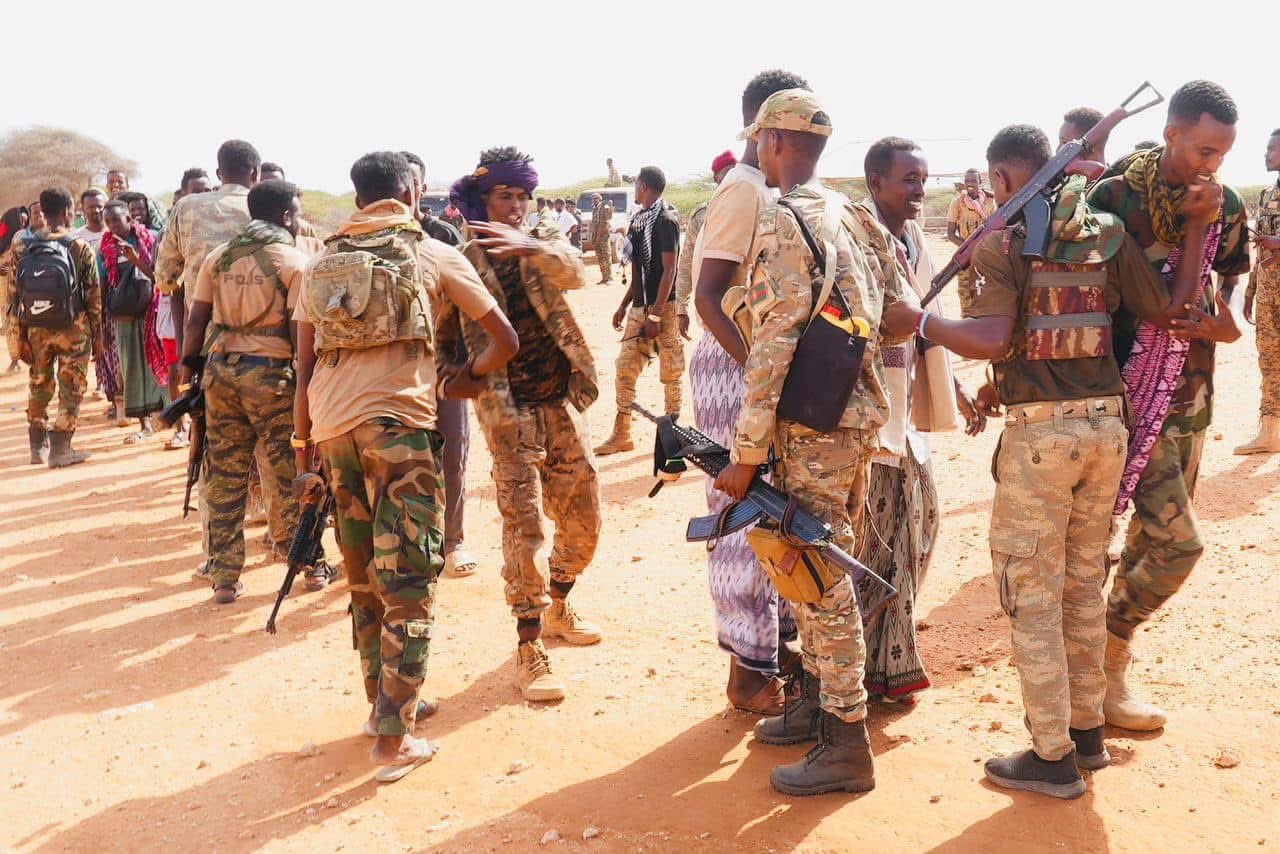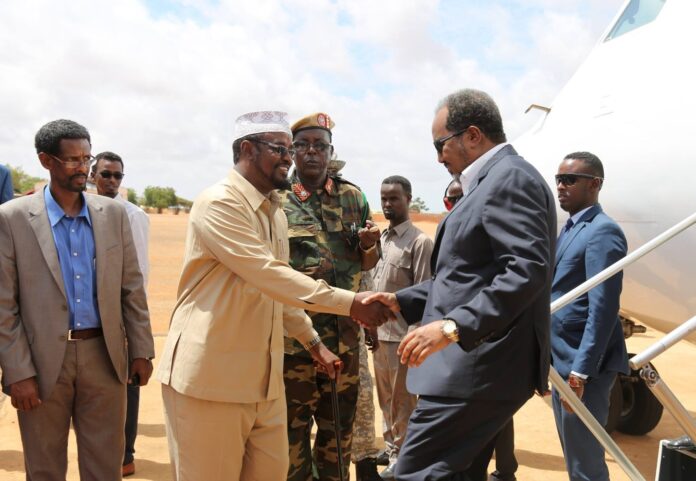KISMAYO (Kaab TV) – The political tensions between Jubbaland and Somalia’s federal government escalated on Friday as Jubbaland President Ahmed Mohamed Islam (Madobe) delivered a blistering critique of Somali President Hassan Sheikh Mohamud.
Speaking at the mosque within the Presidential Palace in Kismayo, Madobe accused Hassan Sheikh of prioritizing clan interests and personal gains over Somalia’s national unity and progress.
“Hassan Sheikh is a tribal mercenary serving his own clannish interests, subordinating the nation he represents to his personal agenda,” said Madobe.
The Jubbaland leader expressed grave concerns about the trajectory of the federal government, calling on the Somali people to resist Hassan Sheikh’s alleged attempts to destabilize the country.
The Jubbaland President described Hassan Sheikh as someone who has failed to separate national interests from his personal and family affairs.
Ahmed Madobe claimed that Hassan Sheikh has entangled his children and wives in state matters, contrasting this with his own conduct.… pic.twitter.com/WaIWCJYKEY
— Kaab TV (@KaabTV) December 27, 2024
Madobe accused Hassan Sheikh of fueling clan conflicts to entrench his authority, describing him as “a war criminal who needs to be stopped from spreading corruption.”
He said that “Hassan Sheikh is instigating clan-based conflicts, arming people in peaceful areas, and looting the nation’s resources. He has even desecrated graves for his personal gain. His corruption extends into places of worship, and he shows no shame or self-awareness about his actions.”
The Jubbaland president also targeted Hassan Sheikh’s alleged entanglement of his family in state affairs, painting him as a leader who prioritizes personal and family interests over national responsibilities.
“Even if I haven’t achieved much for you, I’ve kept my family and clan out of government matters. Hassan Sheikh’s children and wives are looting everywhere. Have you ever seen a son or relative of mine meddling in Jubbaland’s administration? If a leader cannot manage his own household, what can he do for the nation?” Madobe asked.
The Struggle for Resources
The tensions between Ahmed Madobe and Hassan Sheikh Mohamud are rooted in fundamental disagreements over federalism and governance.
Madobe, a staunch advocate of decentralization, supports a federal model granting significant autonomy to regions like Jubbaland.

In contrast, Hassan Sheikh is perceived as favoring a centralized system that consolidates authority under Mogadishu.
This ideological rift has fueled persistent disputes over governance and resource control in Jubbaland.
Election-related controversies have further strained relations.
Madobe’s leadership has been repeatedly questioned by the federal government, which has cited irregularities and exclusivity in Jubbaland’s electoral processes.
The tensions between the two men are compounded by clan politics, with both leaders accused of leveraging clan allegiances to bolster their positions, exacerbating instability in the region.
Control over Jubbaland’s resources, particularly the strategic port city of Kismayo, remains a major flashpoint.
The federal government views the region as integral to national interests, while Madobe insists on managing Jubbaland’s resources autonomously.
This standoff has not only deepened the divide between the two leaders but also hampered efforts to build cooperative federal-state relations.
Earlier in December, President Ahmed Madobe’s Jubbaland forces defeated troops sent by Mogadishu to Raaskaambooni.
Jubbaland claims the federal forces were dispatched with the aim of capturing Kismayo and eventually arresting Madobe.
In response, the federal government, then led by Hassan Sheikh Mohamud, escalated efforts by deploying officials, including the security minister, to Gedo in another attempt to overthrow Madobe’s administration.
Tensions remain high as the standoff has resulted in deadly clashes. A week ago, both sides engaged in violent confrontations in Dollow, a town near the Ethiopian border, and in Kulbiyow, located in the Lower Jubba region close to the Kenyan border.


